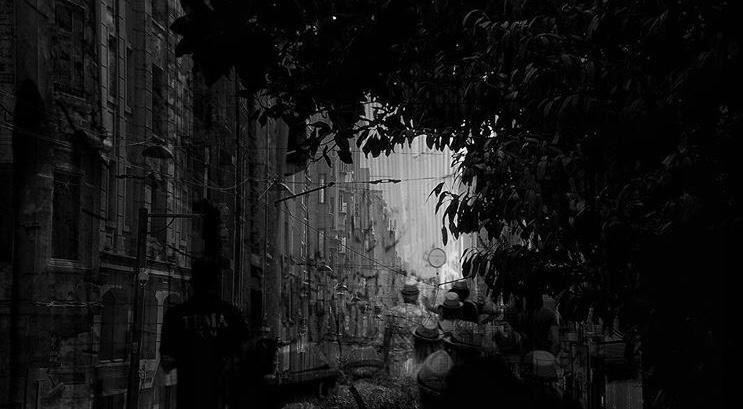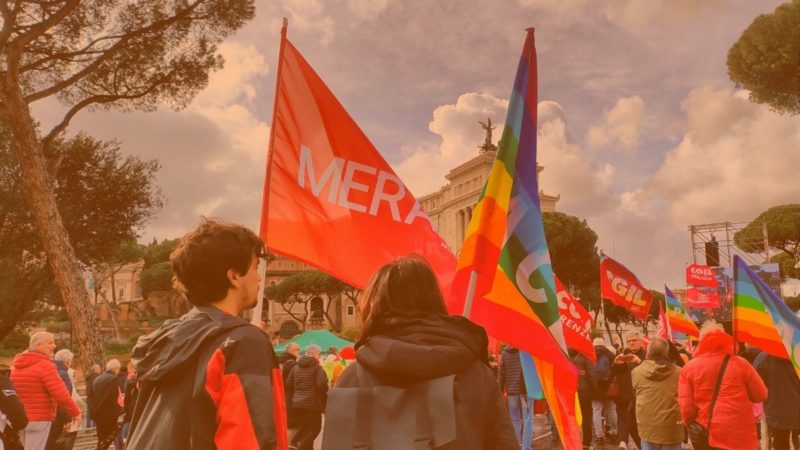The Provisional National Collective in Turkey is pleased to inform DiEM25 members with the fourth issue of a monthly review on Turkey’s social, economic, and cultural state of affairs.
“Optimism is a strategy for making a better future. Because unless you believe that the future can be better, you are unlikely to step up and take responsibility for making it so.”
― Noam Chomsky
The Aegean Sea Earthquake.
On 30 October, Friday a magnitude of 6.9M earthquake struck about 14 km northeast of island Samos causing damages in both Samos and Izmir. Coastal areas of Izmir were damaged by the tsunami that followed. According to Kandilli Observatory and Earthquake Research Institute’s press release 4321 aftershocks struck the area until 18 November. SAKOM (Disaster Medicine Coordination Center) announced 116 deaths and 1034 injuries. About 15000 people have been left homeless in the middle of a pandemic.
The resignation of the Finance Minister and the ‘bumpy’ road towards the appreciation of the Turkish Lira.
On 7 November, Murat Uysal, Turkey’s Central Bank Governor, was fired after Turkish Lira reached a record low. On 8 November, Berat Albayrak, Turkey’s Minister of Finance and son in law of President of Turkey, Recep Tayyip Erdoğan announced his resignation via Instagram. The Instagram account and post were deleted shortly after. Ex Deputy PM, Lutfi Elvan was appointed as Finance Minister, while the Former Finance Minister Naci Agbal was appointed as the Central Bank Governor. Both are long time AKP (Justice and Development Party) members. The above major changes, along with the US elections’ effects on the global market and the 19 November Central Bank interest rate hike from 10,25% to 15%, created a ‘bumpy’ path towards the appreciation of Turkish Lira. Consequently, starting from the resignation date of the Former Finance Minister the Turkish Lira gradually rallied to 7,61 on 20 November reaching back to 7,75 on 30 November.
Tensions between EU and Turkey about maritime boundaries.
The government stresses its sovereignty and right on the maritime boundaries and rejects the claims of Greece and the Greek Cyprus who are pushing for sanctions against Turkey. Resolving all outstanding problems in the region through international law, dialogue and negotiations is still valid by both sides.
The majority of EU members have been reluctant so far to take such action, but the relationship between the EU and Turkey is further deteriorating, according to a statement from the EU foreign policy chief on 19 November Good Faith, as one of the general principles of International Law and maybe the most important one, should be reminded in such cases. The EU and Turkey should cooperate on a common goal in the region, that of being against fossil fuels and all sorts of exploitation of the natural resources for the sake of profit.
The COVID-19 chronicles in Turkey.
Having a natural catastrophe during a pandemic is a worst case scenario any government should be ready for. During the Press Conference held by the Izmir Medical Chamber on 17 November at the chamber’s conference hall it was stated that “according to official authorities, İzmir witnessed twice as many coronavirus cases on the 10th day after the earthquake compared to October 30, when the earthquake struck”. This is leading inevitably to the overburdening of the healthcare system’s response at a considerable level.
Turkey is currently going through a period of “mass contagion” as Minister of Health, Fahrettin Koca stated on 18 November. The restrictions, starting from 20 November will continue until the end of 2020. The measures include restaurants, cafes, hairdressers and shopping malls operating from 10:00 to 20:00, only takeaway and delivery services for dining and a partial lockdown on weekends. Citizens above the age of 65 can leave their houses between 10:00-13:00 on weekday and weekends, while those who are below the age of 20 can leave their houses only between 13:00 and 16:00 on weekday and weekends. Citizens between the age of 20-65 can leave their houses on weekdays any time while during the weekends they have to obey the lockdown from 24:00 – 10:00 & 20:00- 24:00. This lockdown program has caused a lot of confusion and even mockery on social media.
Despite the above measures the pandemic has reached a record high number of new cases announced. Minister of Health Dr. Koca has accepted that “The Ministry of Health was not reporting the number of asymptomatic COVID-19 cases and was including “patients, not cases” in its daily figures table. Latest numbers published for 29 November by the Ministry of Health show 29281 new cases, 6439 new patients.
These restrictions do not allow children to continue going to school physically and therefore remote classes are taking place. Students are expected to attend classes, via TV and the Internet. According to Feray Aytekin Aydoğan, chairperson of Turkey’s Education Syndicate Eğitim-Sen more than 4 million students across Turkey do not have access to the internet or have reported attending the classes using their parents’ smartphones. The effectiveness of this educational system is questioned, while she supports that “the necessary devices and internet access should be provided by the Ministry of Education”.
The ‘shameful’ numbers of domestic violence against women.
At the Assessment Meeting on combating violence against women and family members, the Minister of Interior Süleyman Soylu addressed men said: “Pull yourself together, it is a shame!”
304 women in 2016; 353 women in 2017; 279 women in 2018, while in 2019, 336 women fell victim to violence in Turkey. These are the registered numbers by the police departments. Unfortunately, there are also those whose fate is unknown. As of 20 November this year, 234 women lost their lives in domestic and violence-related murders. The number of domestic violence murders in the first 10 months of last year was 308, while this year the number is stated as 234, which is characterized as a success.
Among the most serious measures is the updating and renewal of the “violence against women and domestic violence case registration form, which is a guide for taking protective and preventive measures for each case specifically”. The laws are sufficient and strong, but there are serious problems on the implementation side. The judicial measures are far from sufficient, the police are reluctant and hesitant, while the media handles these cases as statistical figures. On the other hand, the government is looking for ways to neutralize the Istanbul Convention. Our endeavor is to prevent all these losses, to give women back the place they own.
As the government uses all its means to suppress social opposition, it does not comply with the European Convention on Human Rights and the decisions of European Court of Human Rights.
According to the Reporters Without Borders’ 2020 World Press Freedom Index , Turkey comes 154th among 180 countries, with Norway leading the list while North Korea comes last. It is quite common for human rights activists, journalists and politicians to be kept behind bars due to some ‘imaginary’ crime.
Two important figures — Selahattin Demirtaş & Osman Kavala — are illegally kept behind bars as a means of taking the whole society hostage.
Selahattin Demirtaş is the former co-chair of the Peoples’ Democratic Party (HDP) the third largest party of the parliament, an opposition party. ARTICLE 19 and Human Rights Watch have stated that Selahattin Demirtaş should be released immediately in accordance with the 2018 decision of the European Court of Human Rights.
Eight MPs of People’s Democratic Party (HDP), starting with the party’s co-chair, who were elected with democratic elections, were arrested in November 2016. These arrests became the peak of political trials and intimidation of the opposition right after the 15 July 2016 Coup Attempt. A Coup Attempt that is full of ambiguities. “The Turkish government has misused detention and criminal proceedings in a campaign of persecution against Demirtaş in particular, including by flouting a European Court of Human Rights’ order to release him and concocting new baseless charges to keep him behind bars” said Hugh Williamson, Europe and Central Asia director at Human Rights Watch.
The second important figure is Osman Kavala, rights advocate and activist. Following the Coup Attempt on 15 July 2016, Anadolu Kültür Executive Board Chairman, human rights defender and businessperson Osman Kavala was taken into custody on 18 October 2017. He faced a trial and was acquitted during the Gezi Park trial in 2013. Turkish opposition figures while expecting to be released found themselves behind bars once more because the court ordered their detention again due to new files filed against them, just like being thrown into Kafka’s ‘the Trial’ novel. HRW (Human Rights Watch) and the ICJ (International Commission of Jurists)
“The decision by the Council of Europe Committee of Ministers confirms our submission that political considerations are behind the court orders prolonging Osman Kavala’s detention, and that there has been a concerted official effort to prevent Kavala’s release,” said Emma Sinclair-Webb, Turkey director at Human Rights Watch. Indeed, “Instead of complying with the European Court’s judgment, Turkey has continued to violate Kavala’s human rights.”
According to Human rights lawyer Kerem Altıparmak, the European Court of Human Rights has decided that Turkey is politically motivated in only two files so far. He said that one of them is about rights advocate businessperson Osman Kavala, and the other is about HDP’s former Co-Chair Selahattin Demirtaş. Altıparmak “The European Court of Human Rights up until today has reached the decision that Turkey is politically motivated for arrests only in two cases: of Kavala and Demirtas. In both court decisions, the phrase “The President’s speech against the accused persons has been of great importance in reaching this decision.” This statement indicates evidence that the judicial process is instructed by legislative powers .
Turkey’s first Kurdish Comic Book, Online Theatre Festival and a Ballet Performance Inspired by the Pandemic.
Turkey’s first Kurdish Comic book, GOG will be published soon thanks to a fundraiser. The name of the comic book is inspired by an old children’s game. As stated on GOG’s official website ‘In addition to foreign comics, GOG includes comics and articles produced by Kurdish artists… We aim to contribute to our children’s literacy, who cannot receive education in their mother language’. The comic book is available in both Kurmanji and Zazaki dialects of Kurdish language.
The 24th Istanbul Theatre Festival will be held this year between 14 November — 1 December. The festival is available both at venues and online. The Istanbul Theatre Festival brings together artists from Turkey and abroad and has been held since 1989. The festival combines classical with contemporary and local with international.
The first woman manager of Ankara Directorate General of Opera and Ballet, which also is the first of its kind in Turkey, renowned soprano Feryal Türkoğlu announced that there is a preparation to stage a ballet inspired by the COVİD-19 era we are going through. The performance is meaningfully named “19!”. It would be interesting to see the pandemic reflected on stage via ballet, wouldn’t it?
The pandemic has made clear the urgency to build a post-capitalist future, now!
The norms created in our society up until today are greatly malfunctioning. The “homo economicus” is rather a “zoon politikon” who should use the pandemic for the incubation of new functioning norms and a green, equal, transparent, democratic normal.
Photo by İstanbul1 DSC volunteer Kürşat Oral.
Do you want to be informed of DiEM25's actions? Sign up here




